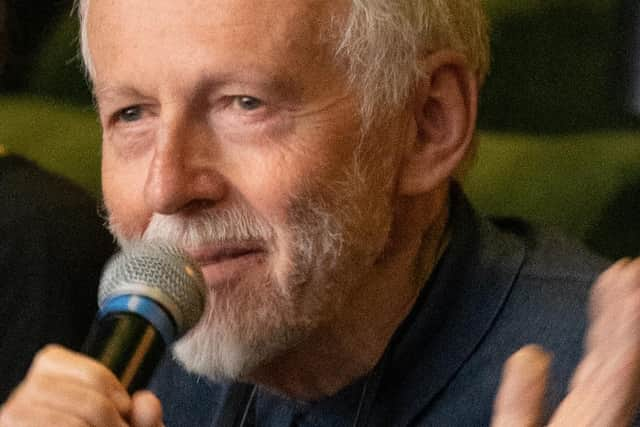Chichester film festival honours celebrated film director Jean-Luc Godard
and live on Freeview channel 276
A retrospective will include the films Breathless, Le Mepris, Weekend, Alphaville, Le Petit Soldat and Slow Motion; and on August 14 film historian Ian Christie will be offering a talk entitled Jean-Luc Godard: Godard’s Reputation and The Map of Cinema. Ian will also include a short documentary he made on Godard.
“To an extent with Godard (b1930), it is a generational thing, in which generation you are. For many youngsters, people under the age of 30, Godard is a figure from the past, almost from the golden age of cinema which seems very strange for people of my age who grew up with Godard in the 1960s when he was an absolute firebrand figure. It feels like we grew up together. He was the man who tore up all the rules. He was the man who would think if I want to make a black and white film, then absolutely go for it; if I want to put my wife in the film or have my own voice on the soundtrack, then go for it. The films felt very daring and very new. And when I was much younger at university, Godard films were absolutely shocking. I put a still from a Godard film on the cover of a magazine I was editing at university. It showed a woman in her bra. All the magazine sellers who were mostly women refused to sell it!
Advertisement
Hide AdAdvertisement
Hide Ad“We were commissioned by Channel 4 to do a Godard evening and we made a documentary which we are now showing in Chichester. It was about Godard’s influence in the 60s and what people thought about him in the now of 1982. What we discovered was already people were dividing along generational lines.


" The older generation said he was an explosive and controversial film-maker but it was divided between people that thought he transformed cinema and others who thought that he was rather a flash in the pan who had gone off and became a victim of his own sense of entitlement.”
Ian is in the former camp: “What I think is that he just kept on reinventing himself. He was one thing at the beginning of the 60s and something completely different by the end of the 60s and then he continued to find a new balance and a new identity. He was someone who was always able to think about the future of the cinema and he was one of the first people to think that TV would change cinema completely. I met him at an archive meeting in Switzerland. He was Swiss though he had his first successes in France. But he was invited to this big archive meeting in Lucerne and he stood up and he said every projection should be a production. It should always produce something and I thought that was a wonderful thing to say, that it was always about the impact on the audience.”
Ian added: “My essay film A Trip To Tetlapayac is also showing on August 14. It's about the disaster of Eisenstein's attempt to make Que Viva Mexico! in 1931, based on my visit to the hacienda where he lived and worked.”
Advertisement
Hide AdAdvertisement
Hide AdThis year’s Chichester International Film Festival which also includes a special retrospective on Hugh Bonneville will be the last for creative director and programmer Roger Gibson who is retiring from his role after the summer